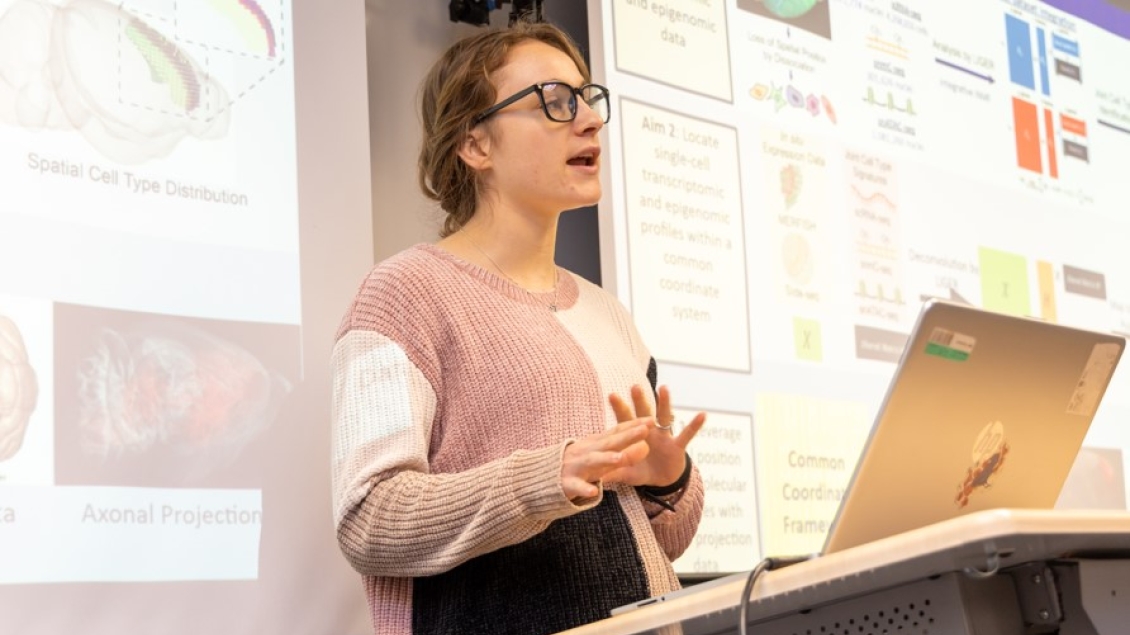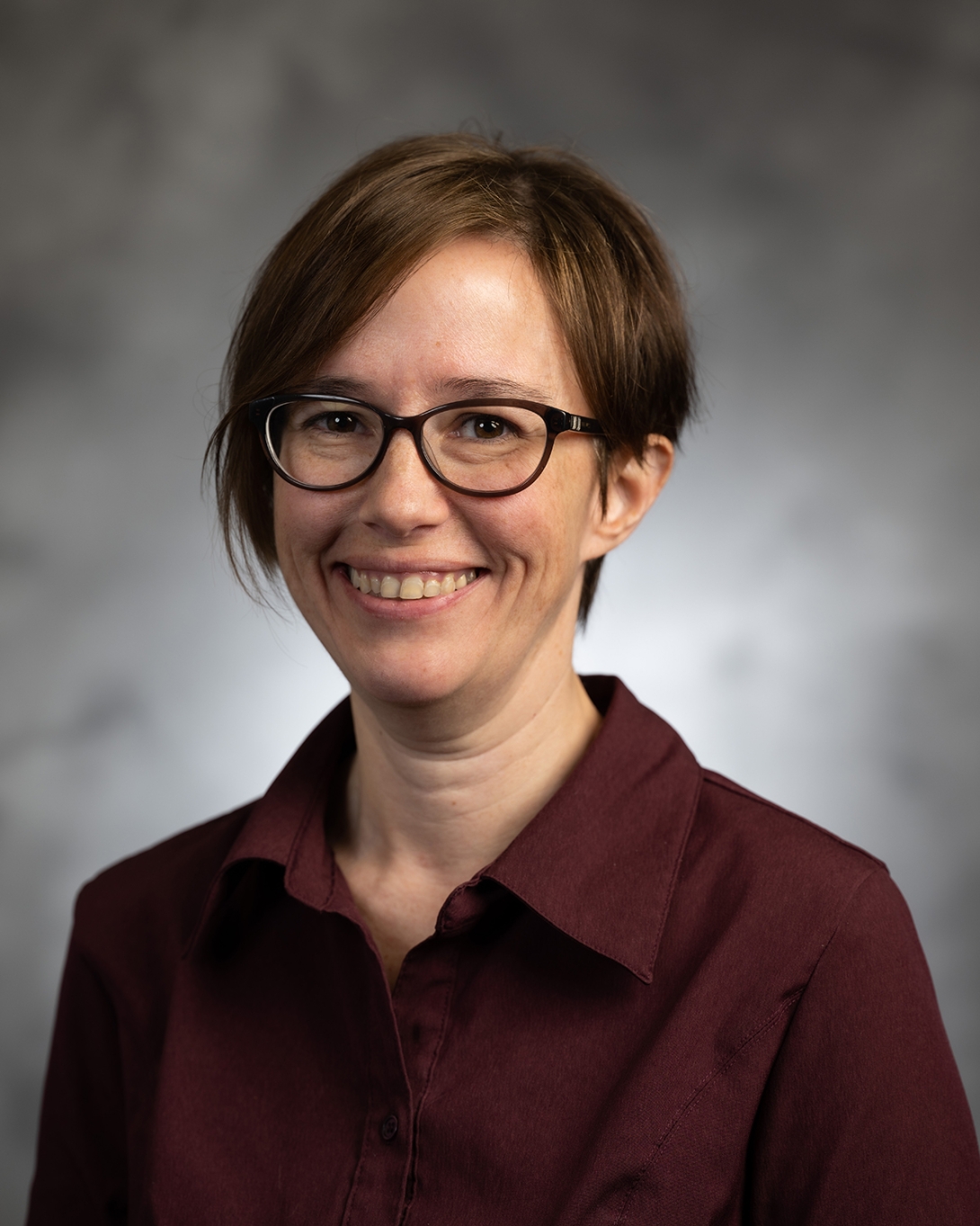
Join Our Quest for Life-Changing Information
Are you geeked up about the power of data? Do you want to lead the next medical revolution? In our Department, you will never stop exploring how to extract the information that matters.
Bioinformatics combines rigorous coursework with research opportunities to give students a unique understanding that bridges knowledge between wet and dry labs. Students in the U-M Medical School Department of Computational Medicine & Bioinformatics study closely with the leaders as they engage in collaborations across campus.
At every level, our students can take courses in advanced math, mathematical modeling, statistics, computer programming, machine learning and informatics, as well as comprehensive courses in introductory biology, genomics, proteomics, clinical informatics, environmental health and many more.
Summary of the four possible tracks and subtracks/concentrations (example lab PIs):
- Genomics/transcriptomics/regulomics (e.g. Kim, Athey, Parker, Boyle, Sartor, Burmeister, Welch, Rao, Freddolino, J. Liu, Willer, Rajapakse, Kitzman, Chinnaiyan, Burant, Moran, Au)
- Genetics/evolution (e.g. Jun Li, Mills, Kidd, Au, Boehnke, Speliotes, Zoellner, Wittkopp, Dick, J. Zhang)
- Machine learning/omics predictions (e.g. Guan, J. Liu, Ye, Baladandayuthapani, Kretzler, Sartor, Dinov, Hero, Draelos, Au)
- Signal/image processing (e.g. Najarian, Rao, Srinivasan, Sripada, Athey, Draelos, Au)
- Proteomics or metabolomics (e.g. Andrews, Nesvizhskii, Karnovsky, Burant)
- Protein structure/dynamics/folding modeling (e.g. Y. Zhang, Brooks, Carlson, Freddolino)
- Clinical / Health informatics / NLP (e.g. Draelos, Dinov, Nallasamy, Singh)
- Electronic Health Records/Genetics/Precision Medicine (e.g. Shi, Hanauer, Taylor, Najarian, Athey)
At the Center for Computational Medicine and Bioinformatics (CCMB), students have an abundance of opportunities to perform research under the mentorship of 120 affiliated faculty members from the U-M Medical School, the College of Engineering, the College of Literature, Arts and Sciences, the School of Public Health, the School of Nursing and the School of Information.

Program Director, Bioinformatics Graduate Program
Professor of Human Genetics
Professor of Psychiatry
Research Professor, Michigan Neuroscience Institute
Program Associate, Wellness Office
Professor of Computational Medicine and Bioinformatics
Associate Professor of Computational Medicine and Bioinformatics

Bioinformatics Graduate Program
Professor of Computational Medicine and Bioinformatics
Professor of Biostatistics


Ann Arbor is consistently ranked one of the best places to live nationwide - for good reason. With the opportunities of a city, the charm of the Midwest and four seasons of outdoor adventure, it’s easy to thrive here.



